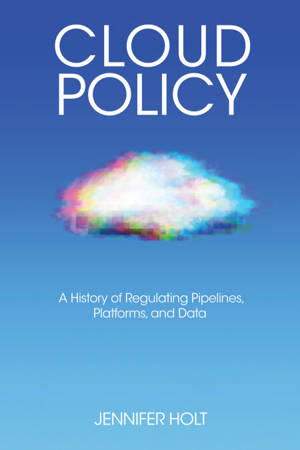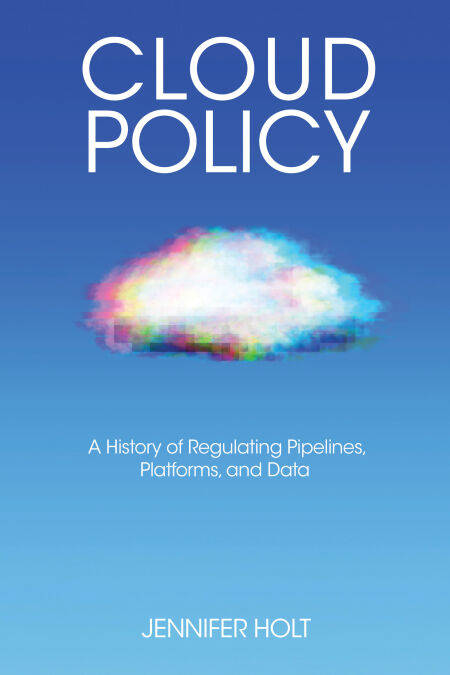
Bedankt voor het vertrouwen het afgelopen jaar! Om jou te bedanken bieden we GRATIS verzending (in België) aan op alles gedurende de hele maand januari.
- Afhalen na 1 uur in een winkel met voorraad
- In januari gratis thuislevering in België
- Ruim aanbod met 7 miljoen producten
Bedankt voor het vertrouwen het afgelopen jaar! Om jou te bedanken bieden we GRATIS verzending (in België) aan op alles gedurende de hele maand januari.
- Afhalen na 1 uur in een winkel met voorraad
- In januari gratis thuislevering in België
- Ruim aanbod met 7 miljoen producten
Zoeken
€ 64,08
+ 64 punten
Omschrijving
How the United States’ regulation of broadband pipelines, digital platforms, and data—together understood as “the cloud”—has eroded civil liberties, democratic principles, and the foundation of the public interest over the past century.
Cloud Policy is a policy history that chronicles how the past century of regulating media infrastructure in the United States has eroded global civil liberties as well as democratic principles and the foundation of the public interest. Jennifer Holt explores the long arc of regulating broadband pipelines, digital platforms, and the data centers that serve as the cloud’s storage facilities—an evolution that is connected to the development of nineteenth- and twentieth-century media and networks, including railroads, highways, telephony, radio, and television. In the process, Cloud Policy unearths the lasting inscriptions of policy written for an analog era and markets that no longer exist on the contemporary governance of digital cloud infrastructure.
Cloud Policy brings together numerous perspectives that have thus far remained largely siloed in their respective fields of law, policy, economics, and media studies. The resulting interdisciplinary argument reveals a properly scaled view of the massive challenge facing policymakers today. Holt also addresses the evolving role of the state in the regulation of global cloud infrastructure and the growing influence of corporate gatekeepers and private sector self-governance. Cloud policy’s trajectory, as Holt explains, has enacted a transformation in the cultural valuation of infrastructure as civic good, turning it into a tool of commercial profit generation. Despite these current predicaments, the book’s historical lens ultimately helps the reader to envision restorative interventions and new forms of activism to create a more equitable future for infrastructure policy.
Cloud Policy is a policy history that chronicles how the past century of regulating media infrastructure in the United States has eroded global civil liberties as well as democratic principles and the foundation of the public interest. Jennifer Holt explores the long arc of regulating broadband pipelines, digital platforms, and the data centers that serve as the cloud’s storage facilities—an evolution that is connected to the development of nineteenth- and twentieth-century media and networks, including railroads, highways, telephony, radio, and television. In the process, Cloud Policy unearths the lasting inscriptions of policy written for an analog era and markets that no longer exist on the contemporary governance of digital cloud infrastructure.
Cloud Policy brings together numerous perspectives that have thus far remained largely siloed in their respective fields of law, policy, economics, and media studies. The resulting interdisciplinary argument reveals a properly scaled view of the massive challenge facing policymakers today. Holt also addresses the evolving role of the state in the regulation of global cloud infrastructure and the growing influence of corporate gatekeepers and private sector self-governance. Cloud policy’s trajectory, as Holt explains, has enacted a transformation in the cultural valuation of infrastructure as civic good, turning it into a tool of commercial profit generation. Despite these current predicaments, the book’s historical lens ultimately helps the reader to envision restorative interventions and new forms of activism to create a more equitable future for infrastructure policy.
Specificaties
Betrokkenen
- Auteur(s):
- Uitgeverij:
Inhoud
- Aantal bladzijden:
- 326
- Taal:
- Engels
- Reeks:
Eigenschappen
- Productcode (EAN):
- 9780262378697
- Verschijningsdatum:
- 16/09/2024
- Uitvoering:
- E-book
- Beveiligd met:
- Adobe DRM
- Formaat:
- ePub

Alleen bij Standaard Boekhandel
+ 64 punten op je klantenkaart van Standaard Boekhandel
Beoordelingen
We publiceren alleen reviews die voldoen aan de voorwaarden voor reviews. Bekijk onze voorwaarden voor reviews.









